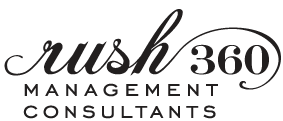The role for healthcare leaders in a national dialogue.
I needed some repairs done over the weekend and got an ear full from the handyman. He couldn’t contain his emotions about the economic impact Covid19 is having on everyone. Who can blame him?
Mixed into some interesting theories about China and the US, were some new perspectives about the environment, the level of inequality and the prioritization of government spending. Given the level of interested in Stakeholder Capitalism, I’ve been thinking about how to incorporate workers from every level at “the board table”. There is value in hearing the unvarnished perspectives from people of all walks of life.
However, this experience left me wondering whether there is a way to filter out the disinformation without affecting the value of the input.
Critical Thinking
I’m not the only one thinking about this right now. Jonathan Haber, author of Critical Thinking has been too. He recently hosted a webinar called Essential Knowledge in the Times of Crisis.
As a society, our critical thinking skills have reportedly become a bit lax. Consequently, we’re leaning too far into our biases especially when it comes to political and other issues that help define us.
The good news is that critical thinking can be taught, assessed and mastered if implemented correctly. General and immersion techniques are commonly used in educational settings now but are less effective than infusion which involves explicit instruction.
Explicit instruction requires the teacher or leader to pause and explain the example when critical thinking is infused into a lesson or problem.
Elements of Critical Thinking
According to Jonathan Haber, there are six [6] elements of critical thinking. Specifically:
1/ Structured Thinking:
Developing a form of logical thinking.
2/ Language Skills:
Developing the ability to structure statements from your thinking.
3/ Argumentation:
Using your structured statements to form an argument.
4/ Background Knowledge:
Having a good foundation of knowledge on the topic.
5/ Persuasive Communication:
Amplifying your argument with more convincing and compelling language.
6/ Understanding and Controlling for Bias:
Being aware of your own biases and being open to new information, facts and ideas rather than dismissing it as “poppycock”.
National Dialogue
There is a role for healthcare leaders to play in shaping the national dialogue.
A few physicians in my social networks are sharing research, explaining the findings and answering questions so that people interpret the information correctly. It’s been really helpful for me and others in the network. Everyone gets the benefit from the group dynamic.
Non-physician leaders could build on that momentum to help develop the background knowledge on the environment, inequality, government spending and other related topics.
What all leaders can do now
1/ Book Clubs
Leaders could host virtual book clubs and facilitate the discussions. Buy the books for participants.
2/ Lecture Series
The Common Wealth Club is hosting virtual events on relevant topics. Tickets are very affordable especially if you’re already a member. Again, leaders could facilitate discussion following the lecture.
3/ Social Networks
Use social networks to engage with people in “positive economics” which is the explanation of the current situation rather than being prescriptive or opinionated. In addition to being heard, people need to know you care. Investing your time in their development shows that you care.
